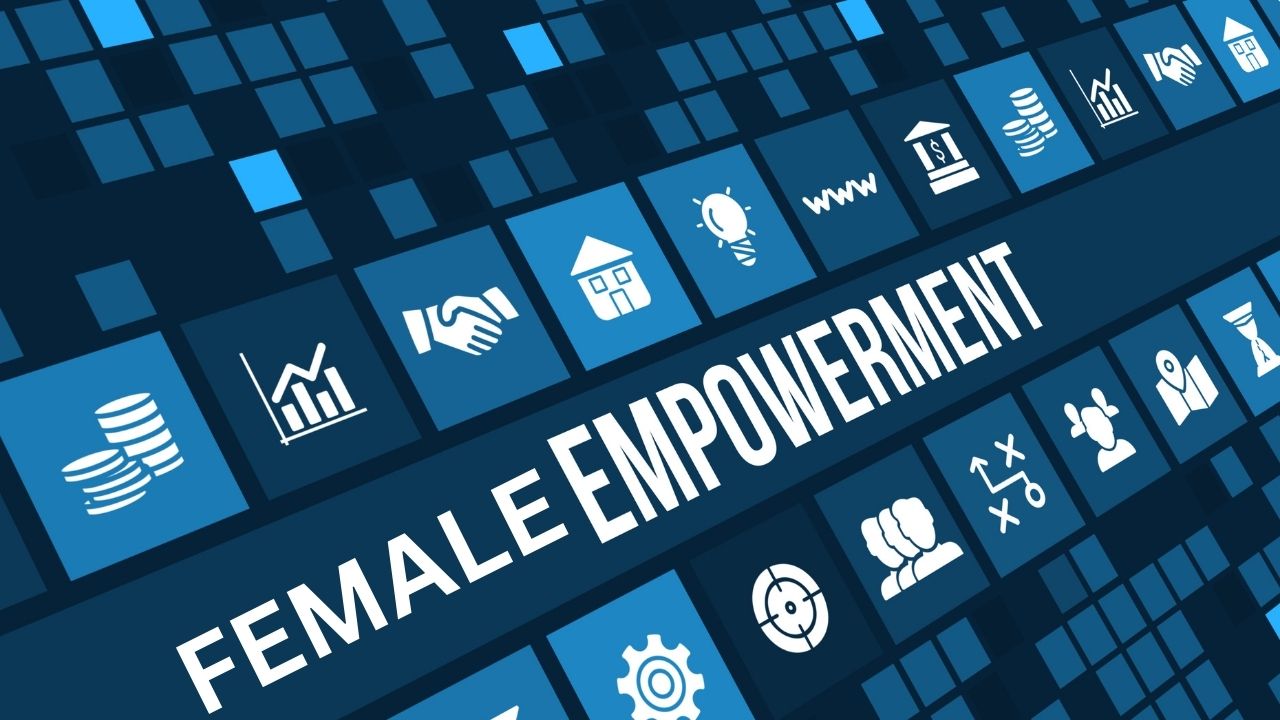The music industry has long been a male-dominated space, but the tides are changing. Today, female empowerment in the music industry is a growing movement, with women taking center stage and influencing every aspect of music creation, production, and distribution. This blog will explore the current state of female empowerment in the music industry, highlight key figures, and discuss ongoing efforts to promote gender equality.
Historical Context
Historically, women in the music industry have faced numerous challenges, including discrimination, limited opportunities, and unequal pay. Despite these barriers, many female artists and professionals have made significant contributions to music. Icons like Aretha Franklin, Madonna, and Beyoncé have paved the way for future generations, demonstrating that women can achieve extraordinary success in a male-dominated field.
The early years of the music industry were marked by a lack of representation and recognition for women. Female musicians were often relegated to roles as vocalists or backup singers, while men dominated the roles of producers, songwriters, and executives. However, despite these limitations, women like Billie Holiday, Ella Fitzgerald, and Nina Simone emerged as groundbreaking artists who challenged societal norms and made significant contributions to the world of music.
Current State of Female Empowerment in the Music Industry
Increased Representation
In recent years, there has been a noticeable increase in the representation of women in the music industry. From chart-topping artists to influential producers and executives, women are making their mark. Initiatives like the Women in Music organization and campaigns for gender equality have contributed to this positive trend. The rise of digital platforms and social media has also played a crucial role in amplifying the voices of female artists and professionals, providing them with more opportunities to showcase their talents and reach wider audiences.
Breaking Barriers
Female empowerment in the music industry involves breaking barriers and challenging stereotypes. Women are now leading major music companies, producing award-winning albums, and headlining festivals. This shift is not just about visibility but also about creating opportunities for women to thrive in every aspect of the industry. The presence of women in leadership positions is crucial for fostering a more inclusive and diverse industry. Women like Sylvia Rhone, the Chair and CEO of Epic Records, and Ann Mincieli, a renowned producer and engineer, are setting examples for future generations.
Success Stories
Several success stories highlight the progress of female empowerment in the music industry. Artists like Taylor Swift, Rihanna, and Billie Eilish have achieved monumental success while advocating for women’s rights and gender equality. Their influence extends beyond music, inspiring millions of women worldwide. Taylor Swift’s activism for artists’ rights and her stance on issues like streaming royalties have set a precedent for fair treatment in the industry. Similarly, Rihanna’s entrepreneurial ventures and philanthropy work demonstrate the multifaceted impact women can have in the music industry.
Challenges Faced by Women in the Music Industry
Despite the progress, women in the music industry still face significant challenges. These include gender bias, harassment, and the pressure to conform to certain standards. Addressing these issues is crucial for fostering a more inclusive and equitable industry.
Gender Bias
Gender bias remains a persistent issue in the music industry. Women often have to work harder to prove their worth and gain recognition. This bias can manifest in various ways, from unequal pay to limited opportunities for career advancement. Studies have shown that female artists and professionals are often judged more harshly than their male counterparts, and their contributions are frequently undervalued.
Harassment and Discrimination
Harassment and discrimination are serious problems that many women in the music industry face. High-profile cases have brought attention to these issues, prompting calls for better protection and support for women. Organizations and movements are working tirelessly to create safer environments for female professionals. The #MeToo movement, which gained significant momentum in the music industry, highlighted the prevalence of sexual harassment and abuse, leading to increased awareness and efforts to address these issues.
The Pressure to Conform
Women in the music industry often face pressure to conform to certain standards of appearance and behavior. This can limit their creative freedom and force them to adhere to unrealistic expectations. Female artists are frequently judged based on their looks, and their music is often scrutinized for its content and message. This pressure can be particularly challenging for young and emerging artists who are trying to establish their careers while staying true to their artistic vision.
Efforts to Promote Gender Equality
Mentorship Programs
Mentorship programs play a vital role in promoting female empowerment in the music industry. By connecting aspiring female artists and professionals with experienced mentors, these programs provide guidance, support, and opportunities for career growth. Mentorship can help women navigate the complexities of the industry, build valuable networks, and gain confidence in their abilities.
Advocacy and Awareness Campaigns
Advocacy and awareness campaigns are essential for driving change. Campaigns like #MeToo and Time’s Up have highlighted the need for gender equality and brought attention to the challenges women face. These movements have sparked important conversations and led to tangible changes in the industry. Industry organizations and advocacy groups continue to push for policies and practices that promote gender equality and create safer, more inclusive environments.
Education and Training
Education and training programs are crucial for empowering women in the music industry. By providing access to resources and training, these programs equip women with the skills and knowledge needed to succeed in various roles, from artists to executives. Programs that focus on music production, engineering, and business management are particularly valuable, as they help women break into areas of the industry where they have traditionally been underrepresented.
Industry Awards and Recognition
Recognizing and celebrating the achievements of women in the music industry is another important aspect of promoting gender equality. Industry awards and honors that specifically acknowledge the contributions of female artists and professionals help to raise their profiles and inspire others. Awards like the Women in Music Awards and the Grammy Awards’ focus on gender diversity have helped to highlight the accomplishments of women in the industry.
The Role of Technology in Empowering Women
Digital Platforms
Digital platforms have revolutionized the music industry, providing new opportunities for female artists and professionals. Platforms like YouTube, Spotify, and SoundCloud allow women to share their music with a global audience, bypassing traditional gatekeepers. These platforms also offer tools and analytics that help artists understand their audience and tailor their strategies accordingly.
Social media is a powerful tool for female empowerment in the music industry. It enables women to connect with fans, promote their work, and advocate for gender equality. Artists like Lizzo and Halsey use social media to engage with their audience and support important causes. Social media also provides a platform for female artists to share their stories, challenge stereotypes, and build supportive communities.
AI and Music Production
AI and music production technologies are opening new doors for women. These tools democratize music creation, allowing more women to produce and distribute their music independently. This shift is helping to level the playing field and create more opportunities for female empowerment. AI-powered platforms like LANDR and Splice provide accessible and affordable tools for music production, making it easier for women to create high-quality music without the need for expensive studio time.
Inspiring Stories of Female Empowerment
Beyoncé: A Pioneer of Female Empowerment
Beyoncé is a prime example of female empowerment in the music industry. Her music, performances, and business ventures have consistently promoted gender equality and women’s rights. She uses her platform to address important social issues and inspire women worldwide. Beyoncé’s work, including her visual album “Lemonade,” has been praised for its powerful messages about race, feminism, and personal empowerment.
Billie Eilish: Breaking Norms and Redefining Success
Billie Eilish has broken numerous records and defied industry norms. Her success story is a testament to the power of authenticity and resilience. She advocates for mental health awareness and body positivity, challenging traditional beauty standards in the industry. Eilish’s unique style and approach to music have resonated with a diverse audience, making her a role model for young women everywhere.
Taylor Swift: Championing Artists’ Rights
Taylor Swift is not only a successful artist but also a fierce advocate for artists’ rights. She has fought for fair compensation and control over her music, setting an example for other artists. Her activism highlights the importance of empowerment and self-advocacy in the music industry. Swift’s battle to regain control of her master recordings brought significant attention to the issue of artist rights and inspired many to take a stand for their creative ownership.
Lizzo: Promoting Self-Love and Body Positivity
Lizzo is an artist who embodies female empowerment in the music industry through her music and public persona. She promotes self-love, body positivity, and confidence, encouraging women to embrace their individuality. Lizzo’s messages of empowerment are reflected in her music, performances, and social media presence, making her a powerful influence on her fans.
Future Prospects for Female Empowerment in the Music Industry
Continued Advocacy
Continued advocacy is essential for sustaining the momentum of female empowerment in the music industry. By supporting organizations and movements that promote gender equality, we can ensure that women continue to make strides in the industry. Advocacy efforts must focus on addressing systemic issues, promoting diversity, and creating opportunities for women at all levels of the industry.
Supporting Emerging Talent
Supporting emerging female talent is crucial for the future of the music industry. By providing opportunities and resources for young women, we can cultivate the next generation of music industry leaders. Initiatives that offer grants, scholarships, and mentorship programs are particularly valuable for helping young women navigate the challenges of the industry and achieve their goals.
Creating Inclusive Environments
Creating inclusive environments where women feel safe, valued, and supported is vital. This involves addressing systemic issues, promoting diversity, and implementing policies that support gender equality. Music companies and organizations must prioritize inclusivity in their hiring practices, workplace culture, and industry events. Providing resources and support for women, including mental health services and professional development opportunities, is essential for fostering a positive environment. By cultivating spaces where women can thrive, the industry can attract and retain more female talent, leading to a richer and more diverse music landscape.
Media Representation and Role Models
Media representation plays a critical role in shaping perceptions and inspiring change. Highlighting the achievements of women in the music industry through documentaries, articles, and interviews can inspire the next generation of female musicians and professionals. Role models like Beyoncé, Taylor Swift, and Lizzo demonstrate that success is possible and can motivate young women to pursue their dreams.
Partnerships and Collaborations
Collaborations between established female artists and emerging talent can create powerful opportunities for mentorship and growth. By working together, women can support each other, share valuable insights, and create a network of empowerment. Partnerships with organizations that promote gender equality in music can also amplify efforts and drive systemic change.
Financial Support and Investment
Financial support and investment in female-led projects are essential for promoting gender equality in the music industry. Grants, funding, and investment opportunities targeted at women can help bridge the gap and provide the necessary resources for women to succeed. Encouraging investment in female entrepreneurs and producers can lead to more diverse and innovative music projects.
The Impact of Female Empowerment on Music
Diversity in Music
Female empowerment in the music industry has led to greater diversity in music. With more women in creative and leadership roles, the industry is seeing a wider range of perspectives and styles. This diversity enriches the music landscape, offering audiences fresh and innovative sounds. The inclusion of women from different cultural backgrounds also promotes a more global and inclusive music industry.
Influence on Popular Culture
Empowered women in the music industry have a significant influence on popular culture. Their music, fashion, and public personas shape trends and inspire fans around the world. Female artists often use their platforms to address social issues, promote positive messages, and advocate for change. This influence extends beyond music, impacting fashion, media, and societal norms.
Economic Impact
The economic impact of female empowerment in the music industry is substantial. As more women achieve success and recognition, they contribute to the industry’s growth and profitability. Female artists, producers, and executives drive innovation and creativity, leading to increased revenue and economic opportunities. Supporting female empowerment in music is not only a matter of equity but also a smart economic strategy.
The Role of Education in Female Empowerment
Music Education Programs
Music education programs play a vital role in empowering young women and fostering talent. Access to quality music education can inspire and prepare girls for careers in the music industry. Programs that focus on skills like songwriting, production, and performance help young women develop the confidence and abilities needed to succeed in music.
Encouraging STEM in Music
Encouraging girls to pursue STEM (Science, Technology, Engineering, and Mathematics) subjects in relation to music can open up new career paths. Fields like audio engineering, music technology, and sound design offer exciting opportunities for women. Educational initiatives that integrate STEM and music can help bridge the gender gap and promote innovation.
Scholarships and Grants
Scholarships and grants specifically for women in music provide essential financial support and opportunities. These programs can help women pursue education and training in music, production, and related fields. By reducing financial barriers, scholarships and grants enable more women to enter and succeed in the music industry.
The Global Perspective
International Initiatives
Female empowerment in the music industry is a global movement, with initiatives and organizations around the world working to promote gender equality. Programs in countries like Sweden, Canada, and Australia have made significant strides in supporting women in music. International collaborations and exchanges can further enhance these efforts and create a more unified approach to gender equality.
Cultural Influences
Cultural influences play a significant role in shaping the experiences of women in the music industry. Different regions have unique challenges and opportunities related to gender equality. Understanding and addressing these cultural contexts is crucial for creating effective strategies for female empowerment. Highlighting successful international examples can provide valuable insights and inspiration for local initiatives.
Cross-Border Collaborations
Cross-border collaborations between female artists and professionals can foster global solidarity and support. These partnerships can lead to innovative projects and amplify the voices of women worldwide. By sharing experiences and resources, women in the music industry can create a more inclusive and supportive global community.
The Future of Female Empowerment in the Music Industry
Technological Advancements
Technological advancements will continue to play a crucial role in female empowerment in the music industry. Innovations in AI, digital distribution, and social media provide new tools and platforms for women to create, share, and promote their music. Embracing these technologies can help women overcome traditional barriers and reach global audiences.
Sustainable Practices
Sustainable practices in the music industry can support female empowerment by creating healthier and more equitable environments. This includes fair compensation, ethical business practices, and environmentally conscious production methods. By prioritizing sustainability, the industry can ensure long-term success and inclusivity.
Policy Changes
Policy changes at the organizational and governmental levels are essential for promoting gender equality in the music industry. This includes enforcing anti-discrimination laws, implementing diversity initiatives, and providing support for women in leadership roles. Advocacy for policy changes can lead to systemic improvements and create a more equitable industry.
Support Women in Music
Supporting women in music is a collective effort that requires action from individuals, organizations, and the industry as a whole. This includes promoting female artists, attending their concerts, buying their music, and supporting initiatives that advocate for gender equality. By actively supporting women in music, we can contribute to a more inclusive and diverse industry.
Educate and Advocate
Education and advocacy are powerful tools for driving change. By educating ourselves and others about the challenges women face in the music industry, we can raise awareness and promote gender equality. Advocacy efforts, whether through social media, community events, or policy initiatives, can amplify the voices of women and create meaningful change.
Foster Inclusivity
Fostering inclusivity in the music industry involves creating environments where everyone feels welcome and valued. This includes promoting diversity in hiring practices, supporting inclusive policies, and encouraging respectful and equitable interactions. By fostering inclusivity, we can build a music industry that reflects and celebrates the diversity of its artists and audiences.
Conclusion
Female empowerment in the music industry is a powerful movement that is reshaping the landscape of music. While significant progress has been made, there is still much work to be done. By continuing to advocate for gender equality, supporting emerging talent, and creating inclusive environments, we can ensure that the music industry becomes a more equitable and empowering space for women. The future of music is bright, and with sustained efforts, women will continue to break barriers, inspire change, and lead the industry towards a more inclusive and diverse future.
For further reading, explore these related articles:
- What Does a Sound Engineer Do in the Music Industry?
- The Role of Journalism in the Music Industry: Unveiling Truths and Celebrating Art
- Creating an Impressive Music Industry Resume: A Comprehensive Guide
For additional resources on music marketing and distribution, visit Deliver My Tune.






